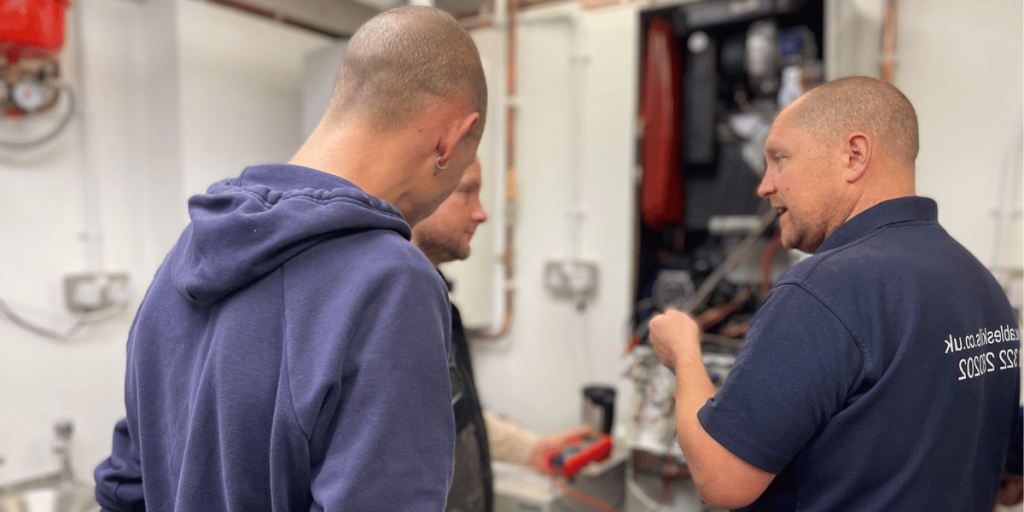
With the gas industry in the midst of a transition towards more sustainable technologies, the sector finds itself at an incredibly exciting stage.
While initial questions had been raised about the long-term demand for gas engineers due to the UK’s plans to move away from traditional natural gas supplies, we now know that the core skills qualified engineers possess are likely to remain extremely sought-after for years and decades to come.
As always, there are numerous progression routes on offer for gas engineers already working in the industry, with the green transition only adding to this list of opportunities.
Train in sustainable technologies
Upskilling and specialising in green technologies that are likely to become commonplace in the future of the industry is a wise move for gas engineers.
With heat pumps already becoming more frequently used as a sustainable alternative to gas boilers, going on to specialise in this technology as a heat pump technician is a great way to get a head start on the rest of the industry.
Hydrogen gas supplies also look set to be a viable alternative to natural gas. To accommodate for this, engineers will need to undergo some element of upskilling, though these additional skills are likely to be underpinned by core gas training.
Add commercial gas qualifications
It’s common for gas engineers to work in a domestic setting in the first couple of years of their career before pursuing commercial qualifications a little further down the line.
Given the frequency of this path, a dedicated domestic to commercial gas changeover course has been developed to streamline the process of gaining these qualifications for experienced engineers.
Beyond this, more advanced appliance-specific training modules are also available for specialist commercial areas such as catering gas.
Being able to work across both domestic and commercial settings is a great way of increasing the scope of work you’re able to take on, standing out to employers and boosting your earning potential.
ACS reassessments
It’s a legal requirement for gas engineers to hold the required and up-to-date ACS qualifications. For experienced engineers, ACS reassessments need to be completed every five years to be legally qualified to carry out gas work.
Specific assessments are in place for both domestic and commercial engineers, so you must complete the ACS assessment that is relevant to the type of work you plan on carrying out.
Specialist training
Advanced training courses that delve into specific areas in much more detail are a great way of growing and improving the services you can offer to clients.
One example of this could be a boiler fault-finding course, which provides engineers with a much more in-depth technical knowledge of boiler maintenance, fault-finding and repair capabilities.
Whatever stage of your gas career you’re at, Able Skills offers a range of courses. You can find more information here.